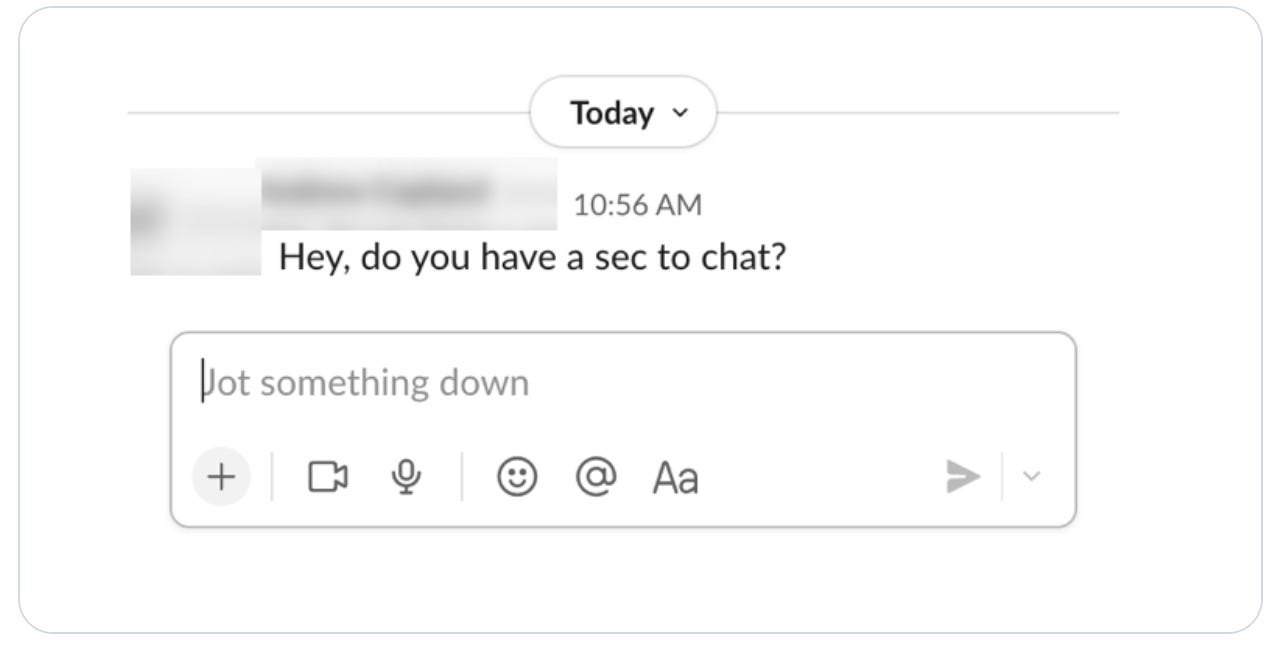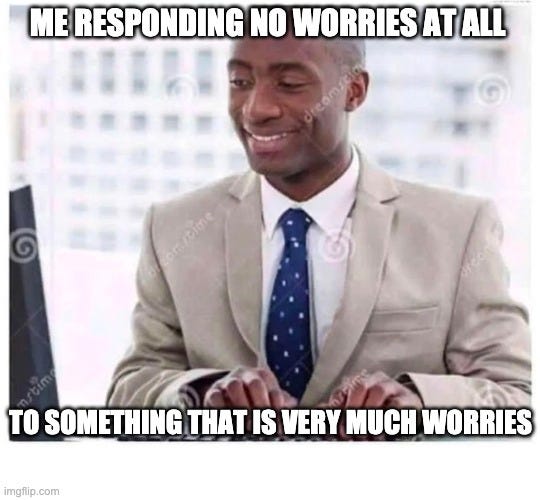Is this the most anxiety inducing message of all time?
Take a quick look at this slack message below. Assume it’s from your boss.

Did your blood pressure spike? Did you feel the cold-hand of dread grip your heart? Did it stress you out thinking of the last time your manager sent you something along these lines?
If you’re anything like me you probably felt all of the above. And if you’re like most people in corporate America, you’ve probably sent this exact same message to a member of your team before.
Stop (unintentionally) stressing out your teams
People are generally hardwired to assume the worst. We assume that an ambiguous note from our manager means trouble. Our minds gravitate towards prepping for a hard conversation (ex: layoffs, you did something wrong, your boss is upset, etc).
The funny thing is, it’s generally not the worst! Most of the time, a note from your boss asking if you “have a second to chat?” has nothing to do with bad news at all. But it’s hard to tell ourselves that in the moment.
I’ve experienced this more times than I can count in my own professional life. One of the lead partners at the consulting firm I used to work at was infamous for sending cryptic messages like this to staff consultants. I still remember the anxiety that would rise in my chest every time I’d see an instant message (IM) pop up from him saying “can you talk right now?”. Ditto for the unexpected calendar invites to meet with him 1:1 that had no meeting title or explanation. Each time I assumed that conversation was going to end up with me packing up my belongings in a cardboard box and being asked to leave the premises immediately.
Manager’s generally don’t mean to cause employees to feel this way. But if they’re not careful in how they use those oh-so-convenient IM channels (Slack, email, Teams, text, etc..), they can unintentionally create a culture of stress/fear and even resentment.
A very simple solution to stress inducing messages
Fortunately there is an extremely simple solution. Simply tell someone why you want to chat with them!
Provide clarity. It only takes 1-2 sentences and makes a world of difference. People always appreciate a heads up. It not only takes away the fear that they’re somehow in trouble, but also lets them know how to best prep for that conversation with you.
Here’s a simple example (using the exact same slack message from above)

Notice how simply adding that second sentence explaining why your boss wants to meet takes away most (if not all) of the stress. There’s no ambiguity. Instead you know exactly what the conversation is going to be about and you’re appreciative of knowing why they want to speak with you.
Tip: Do the same thing with meeting invites. Don’t just randomly throw a meeting on someone’s calendar. Add a clear (descriptive) title and short description on what the meeting agenda is going to cover.
We’re just getting started and would love your help in sharing this newsletter with others.
So what should you do when you actually do need to have a difficult discussion?
There of course will be times when you as the manager, do need to have a harder conversation with a member of your team (ex: layoffs, talk about work performance issues, etc). What do you do then?
A couple tips:
- Wait for your regularly scheduled one on one (which should ideally have a ‘performance feedback’ item built into the agenda). The whole reason for a regular 1:1 is that it provides a natural setting for these kind of conversations.
- Have the courage to let them know what you want to talk about. Example: “Do you have a few seconds to talk about some feedback I have for you? I wanted to cover a few things that I think could really help your career.” They may still be stressed for the upcoming conversation, but I promise it will be less stress than letting their imaginations run wild as you’ve indicated the scope of what you’ll be talking about, and implicitly taken some of the “worst case scenario” items off of their mind. (ex: I know my boss wants to talk to me about how I need to improve, but they also didn’t say I was getting fired so I can probably stop worrying about that)
- Save the “Do you have a few mins to talk about something?” phrase for only when it is actually bad news. This is my least favorite option (as I think it lacks courage), but it is something you can use if absolutely needed.
Closing Thoughts
Reminder #1: Just remember that if you get one of those fun “do you have a sec to chat?” messages, know that there is an extremely high likelihood that it isn’t bad news at all! Try not to stress too much, difficult though it can be.
Reminder #2: If you’re the boss, please give this a try and stop doing this to your team! Give them the clarity and heads up they will always appreciate whenever you want to chat with them. If you don’t, just know that your team is very likely responding like this to all of your emails…



